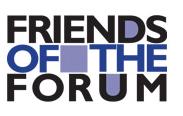| 2013 |
Sokołów Podlaski
Henryk Sienkiewicz Salesian School Complex


| 2013 |
Finalist at 2013 School of Dialogue Gala
Students with an explorer’s knack – those who like to search, ask why and are not satisfied with answers provided by Wikipedia – particularly enjoy participating in the School of Dialogue program. The program is for those who like challenges and are not afraid to peek into cellars, old tenement homes or courtyards, ask strangers for information or sift through municipal archives. It’s also for those who aren’t detracted by Hebrew inscriptions or Google search returning no results. And so, high school students from Sokołów Podlaski discovered sites connected to their town’s Jewish past through the School of Dialogue program. “When we were exploring these sites, I was surprised there are so many of them. But they are hidden away in various nooks and crannies” says Maciek, one of the program participants.
Indeed, it makes you wonder that to find traces of a centuries-long presence of a group that once constituted 40% of the local population you need to turn to “nooks and crannies”. Jews began settling in Sokołów in the early 17th century. In mid-17th century, the first synagogue was erected in the town. Community buildings were later built around the synagogue – these included a hospital and schools.
Over time, the street became known as Bożnicza [Polish for Synagogue Street]. Over the years, four other Kehilla-owned synagogues were built at this street. The fifth one was private-owned and located at Rogowska Street. Sokołów was a typical multinational town on the Eastern frontier. Its central and northern part was inhabited by Catholics, the central and western – by Jews, while Ruthenians would settle around the Orthodox church. In early 20th century, local Jews were manufacturing clothing and working in trade. During World War II, on September 28, 1941, a ghetto was created along the borders of Piękna, Mała and Prosta streets. Seven thousand people were herded inside. During its liquidation on September 30, 1942, around 1000 people were murdered, while everyone else was deported to Treblinka extermination camp. The synagogue building, which was severely damaged in the war, now a local supermarket stands on its site. The former Jewish cemetery has now become a municipal park; only a monument erected in 2009 is a reminder of the site’s original function.
In the course of the workshops with Forum for Dialogue educators it turned out that there are more traces to be found. During the ”test” walking tour of Jewish Sokołów students discovered a trace after a mezuzah on one of the doorframes. Additionally, they managed to find archival photographs of their town and memoirs from the war. In the course of School of Dialogue program, students demonstrated great enthusiasm for workshop activities. Through active engagement in workshop activities, they learned new facts about their town’s past and the role of the Jewish community in prewar Sokołów. “Menorah, Shabbat, synagogue, mikveh, matzevot are terms I learned a lot about. Thanks to these sessions I gained a lot of new knowledge, but also enjoyed myself” says one of the participants.
For their final project, students prepared not one, but two walking tour of Jewish Sokołów Podlaski – the first one intended for other students of their school, the second – for all interested residents of the town. The tours were widely advertised in the regional radio, local press and regional websites. Sokołów’s Cultural Center provided ample support as well.
The walking tour began with a short film screening from a street poll that students conducted while preparing their project. The poll was about passersby knowledge about Sokołów’s prewar Jewish inhabitants and Jewish culture in general. Next, tour participants visited sites including: the ruins of a mill that once belonged to a Jewish family; the park that is located on the grounds of a former Jewish cemetery; place were synagogue stood and where mikveh was located. They pointed to sites of the house of Sokołów’s last rabbi and the building of the prewar Jewish community. After the tour, participants took part in a game inside the school that was meant to check how much they had learned in the course of the tour. All game participants received sweet (and edible) prizes. Everyone was invited to try delicious dishes prepared by students who organized the event. After the second tour, no game was played due to participants’ senior age, but a film recording from the first event was presented instead. The tour attracted around 50 local residents. Students’ final project report took the form of a blog.
School:
Henryk Sienkiewicz Salesian School Complex
Honorable mention:
Finalist at 2013 School of Dialogue Gala
Students:
from different grades of junior high school and high school
Teachers:
Grażyna Błońska, Ewa Chadaj
Local expert:
Paweł Kryszczuk
Educators:
Małgorzata Kruszewska, Sonia Ruszkowska
I now have a much better understanding of the trauma it must have been to leave your house and emigrate. Jews who sometimes return to visit their former hometowns experience all kinds of intensive emotions, including sadness or nostalgia. Their story might have been completely different if they had stayed in Poland.
Workshop participant
In appreciation to the Conference on Jewish Material Claims Against Germany (Claims Conference) for supporting this educational program. Through recovering the assets of the victims of the Holocaust, the Claims Conference enables organizations around the world to provide education about the Shoah and to preserve the memory of those who perished.

In appreciation to Friends of the Forum for supporting the School of Dialogue educational program.
